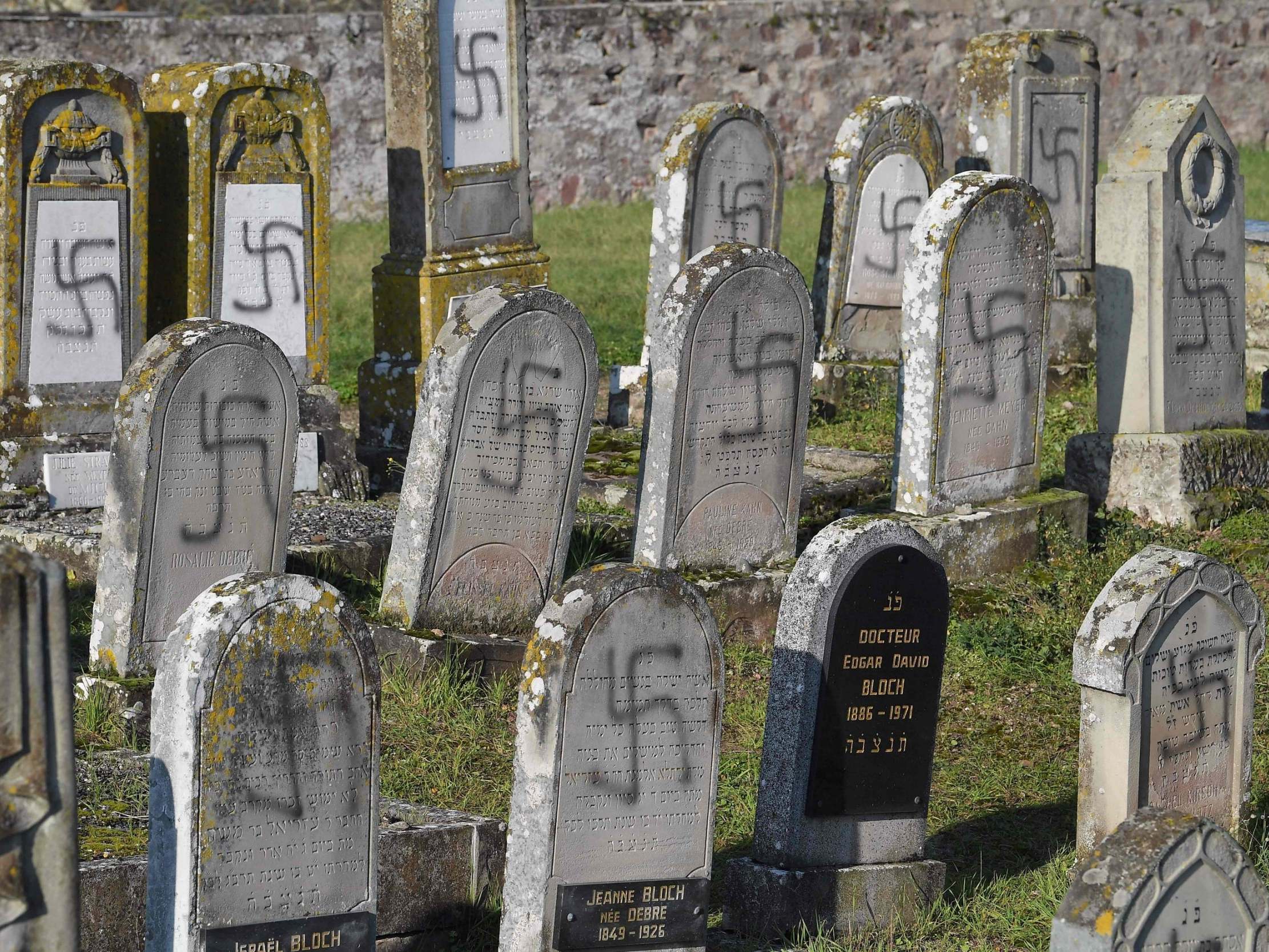More than 100 Jewish graves defaced in France with Nazi swastikas
‘Jews are and make France,’ says French president

Your support helps us to tell the story
From reproductive rights to climate change to Big Tech, The Independent is on the ground when the story is developing. Whether it's investigating the financials of Elon Musk's pro-Trump PAC or producing our latest documentary, 'The A Word', which shines a light on the American women fighting for reproductive rights, we know how important it is to parse out the facts from the messaging.
At such a critical moment in US history, we need reporters on the ground. Your donation allows us to keep sending journalists to speak to both sides of the story.
The Independent is trusted by Americans across the entire political spectrum. And unlike many other quality news outlets, we choose not to lock Americans out of our reporting and analysis with paywalls. We believe quality journalism should be available to everyone, paid for by those who can afford it.
Your support makes all the difference.More than 100 Jewish graves have been defaced with Nazi swastikas in an antisemitic attack in France.
The graves were found spray-painted with antisemitic inscriptions in the town of Westhoffen, near Strasbourg, on Tuesday – the same day as a similar incident in the nearby village of Schafhouse-sur-Zorn.
France has Europe’s biggest Jewish community – about 550,000 – and antisemitic attacks are common, with more than 500 alone in 2018.
French president Emmanuel Macron said “Jews are and make France” in a tweet in response to the attack.
He added: “Those who attack them, even in their graves, are not worthy of the idea we have of France.”
In a visit to Westhoffen on Wednesday, interior minister Christophe Castaner announced the French government would create a national anti-hate crime office.
Speaking alongside Jewish leaders, Mr Castaner condemned the graffiti as a sign that “hate is on our national territory”.
“We must respect the right to believe,” he said.
A special police unit has begun investigating the incident and the new national office will seek to fight hate crimes, he added.
The graffiti marked the latest in a string of antisemitic acts in the Bas-Rhin region.
Earlier this year, politicians from across the spectrum joined marches against antisemitism.
They denounced a surge in attacks that some commentators blamed on incitement by Islamist preachers, others on the rise of anti-Zionism – opposition to the existence of Israel as a homeland for the Jewish people.
Lawmakers in parliament’s lower house on Tuesday evening approved a non-legally binding resolution modelled on the definition of antisemitism set by the International Holocaust Remembrance Alliance (IHRA).
The IHRA definition, which serves as an international guideline, does not reference “anti-Zionism” but does say denying Jews their right to self-determination is antisemitic.
The World Jewish Congress hailed the move, saying: “For too long too many have used the excuse that their obsessive criticism of Israel stands exclusive from their otherwise positive feelings for the Jewish people. Those days are now over.”
Debate over the resolution split Macron’s ruling La Republique En Marche party, with some opponents saying it could impede people from criticising the Israeli government.
Agencies contributed to this report.
Join our commenting forum
Join thought-provoking conversations, follow other Independent readers and see their replies
Comments